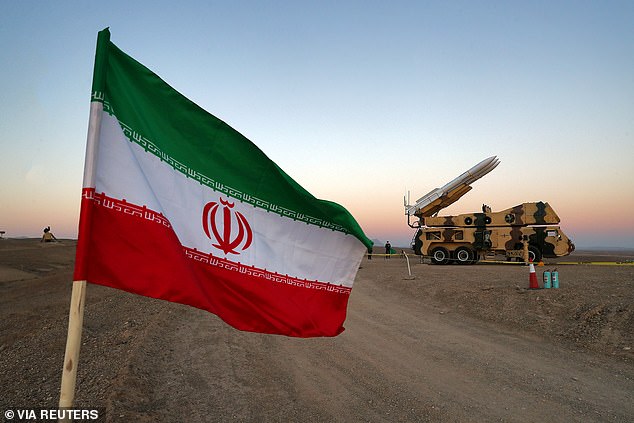Russia is sending air defense systems to Iran as the authoritarian state prepares an imminent attack on Israel, according to officials in Tehran.
Two Iranian officials, one of whom was a member of the country’s military, told the New York Times that Russia has begun delivering advanced radar and air defense equipment.
Although it is not known exactly what equipment Iran had requested, Iran already has several Russian-made S-300 air defense systems.
Just yesterday, Sergei Shoigu, secretary of the Russian Security Council and former defense minister, met with Iranian President Masoud Pezeshkian and senior security officials to support the Middle Eastern nation.
Shoigu said: “We are ready to fully cooperate with Iran in various areas.”
Meanwhile, Pezeshkian thanked Moscow for supporting Iran in “difficult times” and added that he wanted to strengthen relations with Russia.
Iran is currently preparing for a major attack on Israel in retaliation for the assassination of Hamas chief negotiator Ismail Haniyeh in Tehran and Hezbollah commander Fuad Shukr in Beirut last month.
Russia sends air defense systems to Iran as authoritarian state prepares imminent attack on Israel (File image)
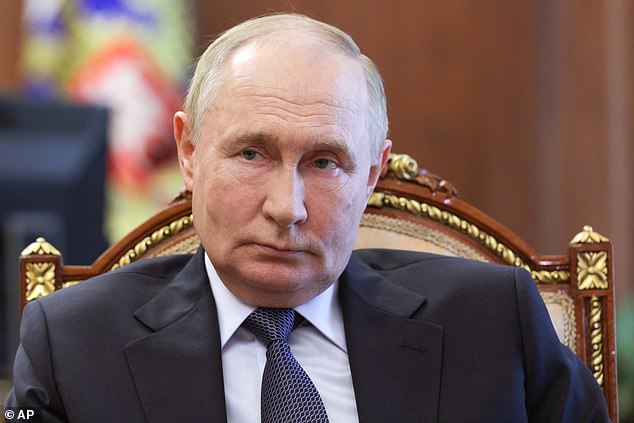
Russia and Iran have become close allies in recent years.
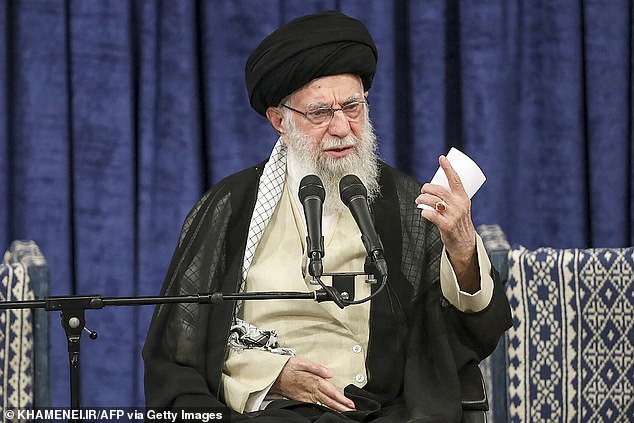
Iran’s Supreme Leader Ayatollah Ali Khamenei has ordered his country’s military to take revenge for the killing of Hamas’s chief negotiator Ismail Haniyeh in Tehran and Fuad Shukr in Beirut last month.
Top US diplomat Anthony Blinken told the G7 over the weekend that there was little information about what form the expected attack would take but that it was likely to happen by late Tuesday, if at all.
U.S. and Israeli officials believe Iran would coordinate with its allies in the region, also known as the Axis of Resistance, which is made up of groups such as Hezbollah in Lebanon and the Houthis in Yemen.
Behind closed doors, the United States has been working to ease tensions between Israel, Iran and their respective allies.
In a desperate bid to ease tensions, Biden yesterday called Jordan’s King Abdullah II, who helped shoot down Iranian drones and missiles in an earlier clash in April, while Blinken called senior officials in Qatar and Egypt, the key brokers seeking a ceasefire in the 10-month war between Israel and Hamas.
“We are conducting intensive diplomacy, virtually around the clock, with a very simple message: All sides must refrain from escalating the situation,” Blinken said after joining other senior officials in a meeting at the White House.
“It is also critical that we break this cycle by reaching a ceasefire in Gaza,” Blinken said.
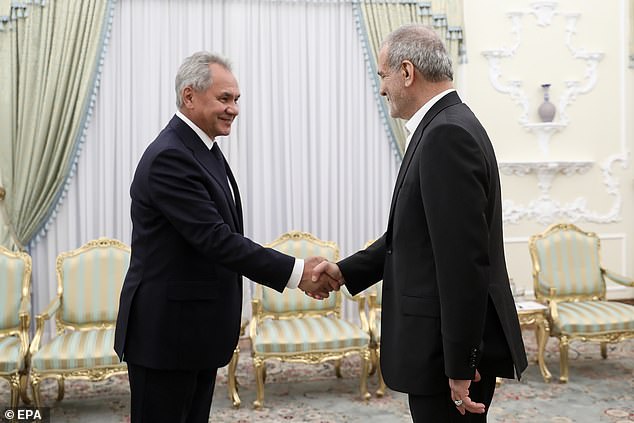
Iranian President Masoud Pezeshkian (right) meets with Russian Security Council Secretary Sergei Shoigu (left) in Tehran, Iran, August 5, 2024
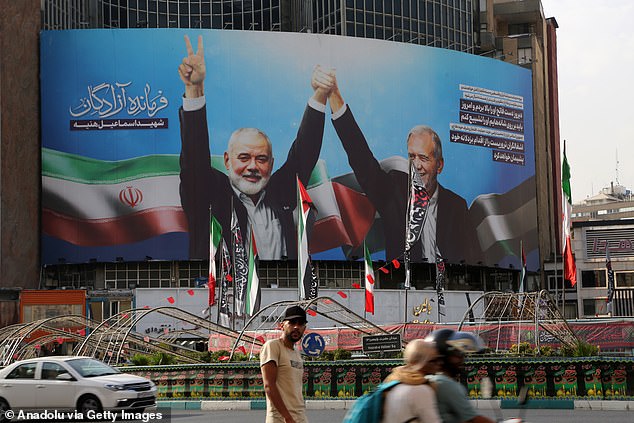
Poster of Iranian President Masoud Pezeshkian with Hamas Political Bureau chief Ismail Haniyeh at the inauguration ceremony, hanging on Veliasr Street in Tehran, Iran
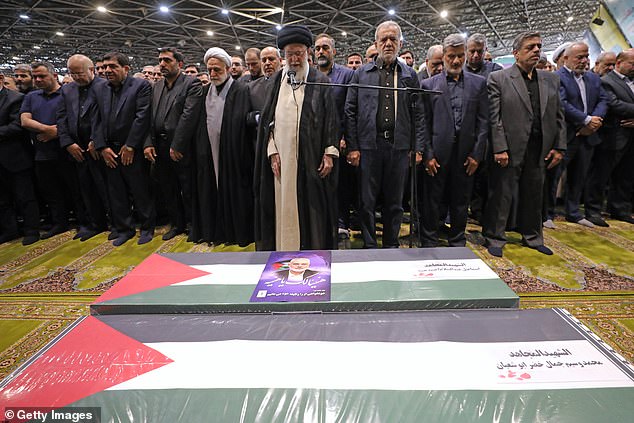
Iran’s Supreme Leader Ayatollah Ali Khamenei leads a prayer at the coffins of Hamas leader Ismail Haniyeh and his bodyguard, who were killed in an assassination blamed on Israel.
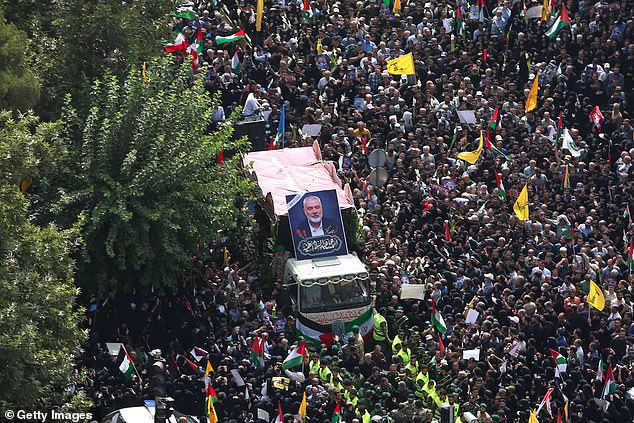
People gather during a funeral procession for Ismail Haniyeh, the Hamas political leader and his bodyguard who were killed in an assassination in Tehran, Iran.
Despite this, the IDF has continued to wage war against Palestine and Hezbollah.
An Israeli missile strike killed four Hezbollah fighters in a house in the southern Lebanese town of Mayfadoun today.
Meanwhile, eight Palestinians were killed in two raids by the Israel Defense Forces in the West Bank. Four were killed in the Jenin area and four in the Tubas district.
Israel has been criticized in the past for not doing enough to support Western allies in their own geopolitical struggles long before October 7.
In 2022, Volodymyr Zelensky angrily questioned Israeli politicians about why they had blocked the transfer of Iron Dome missiles to Ukraine and then refused to impose appropriate sanctions against Russia.
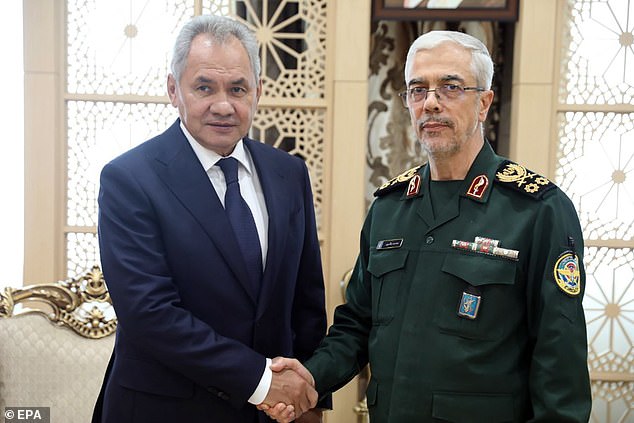
Iranian Armed Forces Chief of Staff General Mohammad Bagheri (right) meets with Russian Security Council Secretary Sergei Shoigu (left) in Tehran, Iran
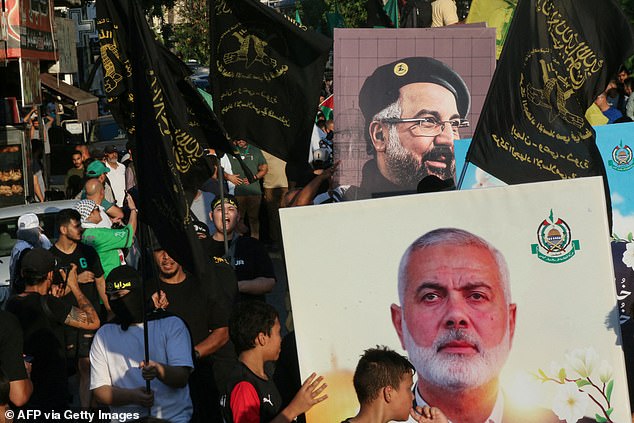
People take part in a march called by Palestinian and Lebanese youth organizations in the southern Lebanese city of Saida on August 5, 2024, to protest against the killing of Hamas chief Ismail Haniyeh.
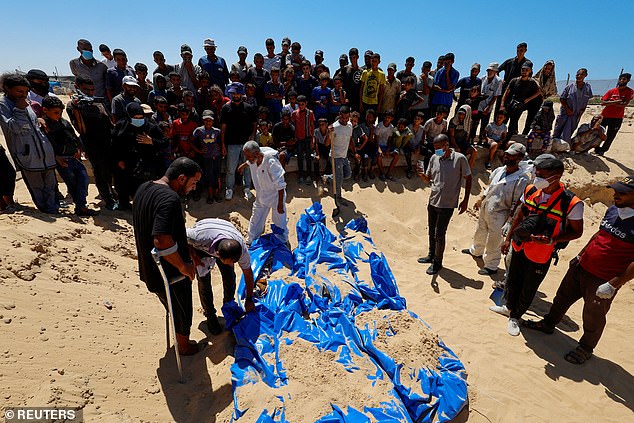
People watch as bodies of unidentified Palestinians are buried in a mass grave after Israel handed them over, amid the conflict between Israel and Hamas, in Khan Younis, southern Gaza Strip, August 5, 2024.
Then-Israeli Prime Minister Naftali Bennett attempted to claim that Israel’s role as mediator in the conflict between Ukraine and Russia meant it should remain neutral.
But Zelensky told Israeli lawmakers: “Mediation can be between states, not between good and evil.”
A Ukrainian official also claimed at the time that Bennett tried to convince Zelensky to agree to Putin’s ridiculed demands to end the bloodiest conflict on European soil in decades.
“If I were you, I would think about the lives of my people and accept the offer,” the official said Bennett told Zelensky.
“Bennett is basically telling us to give up, and we have no intention of doing so,” the Ukrainian official said at the time.


